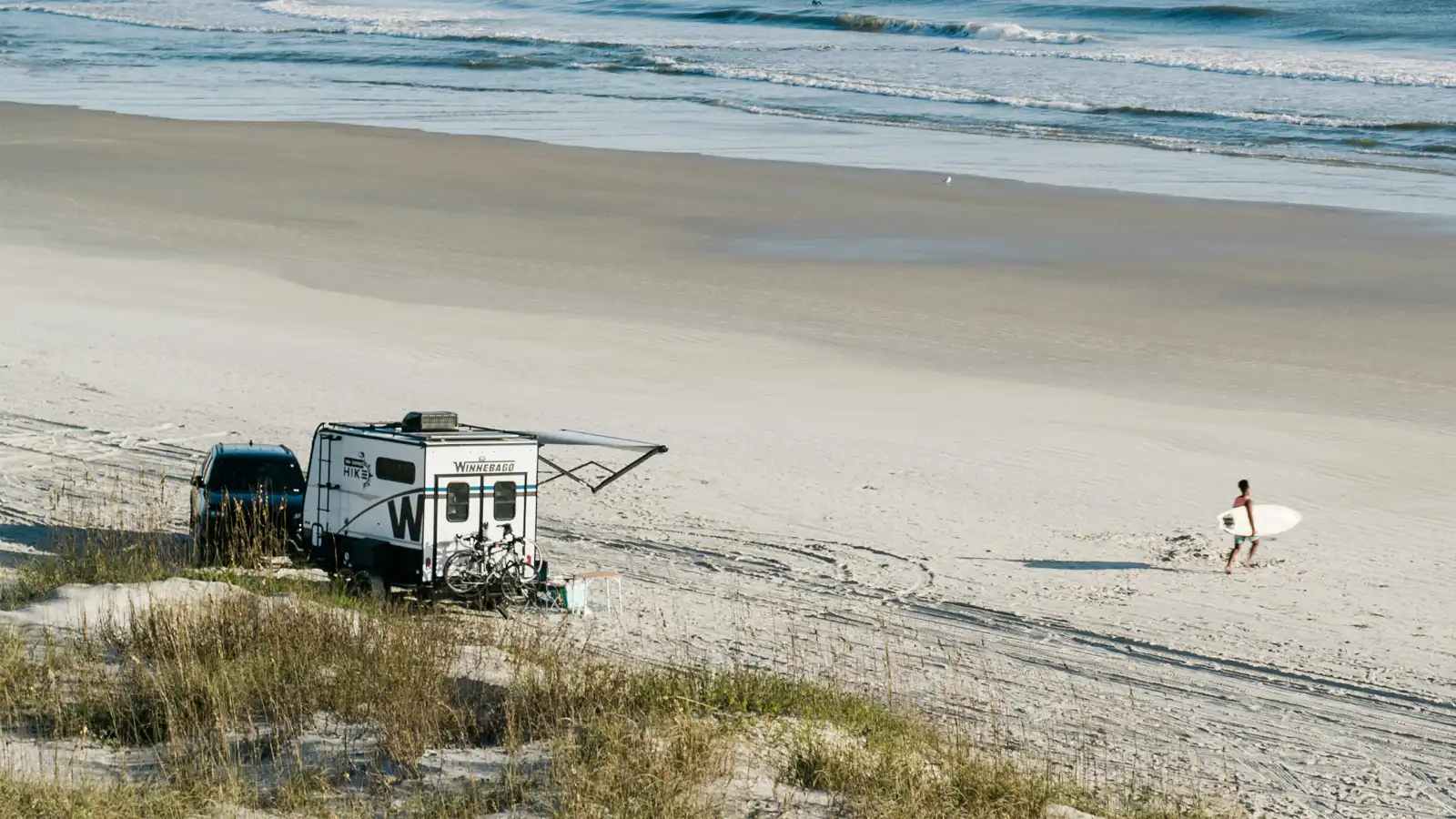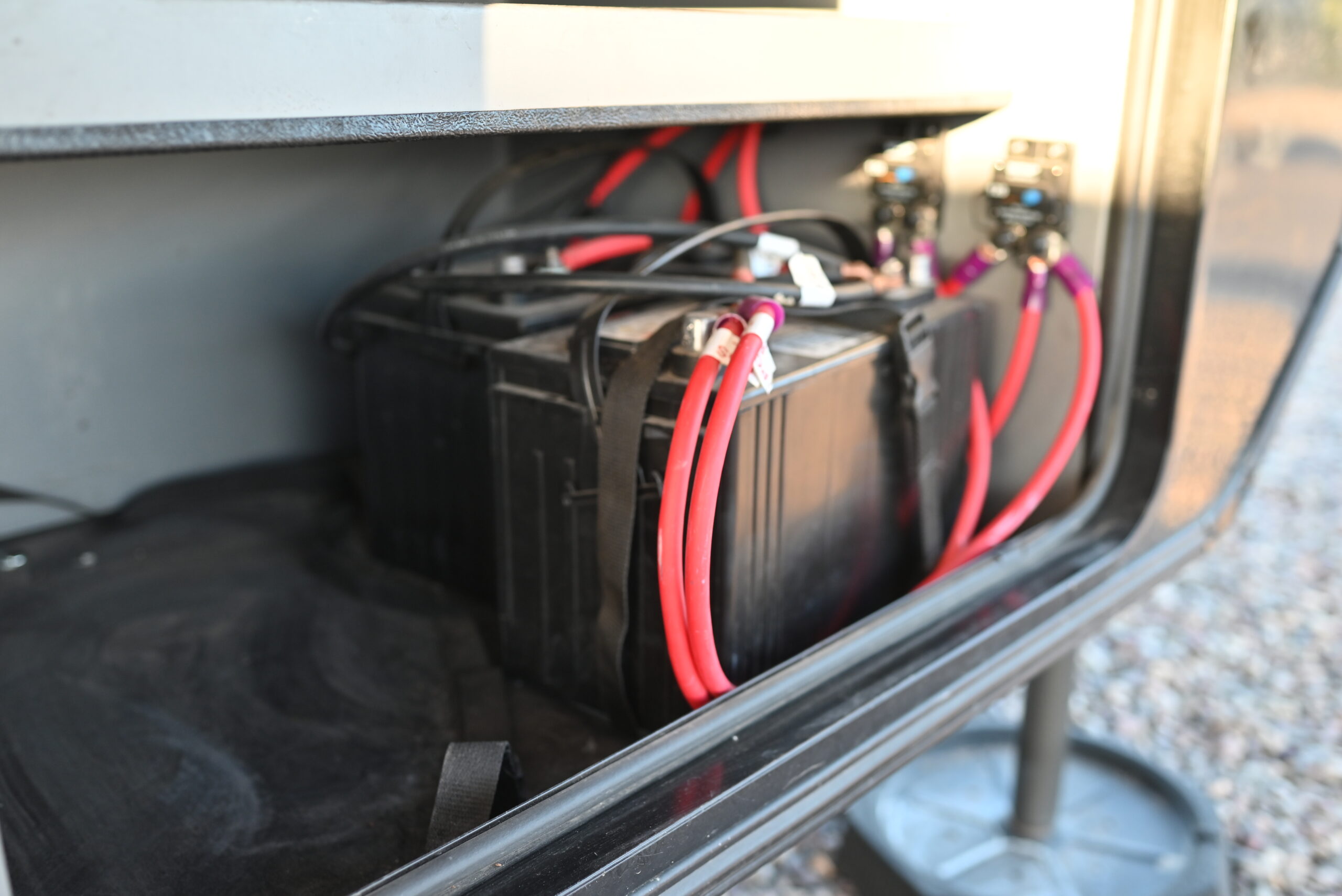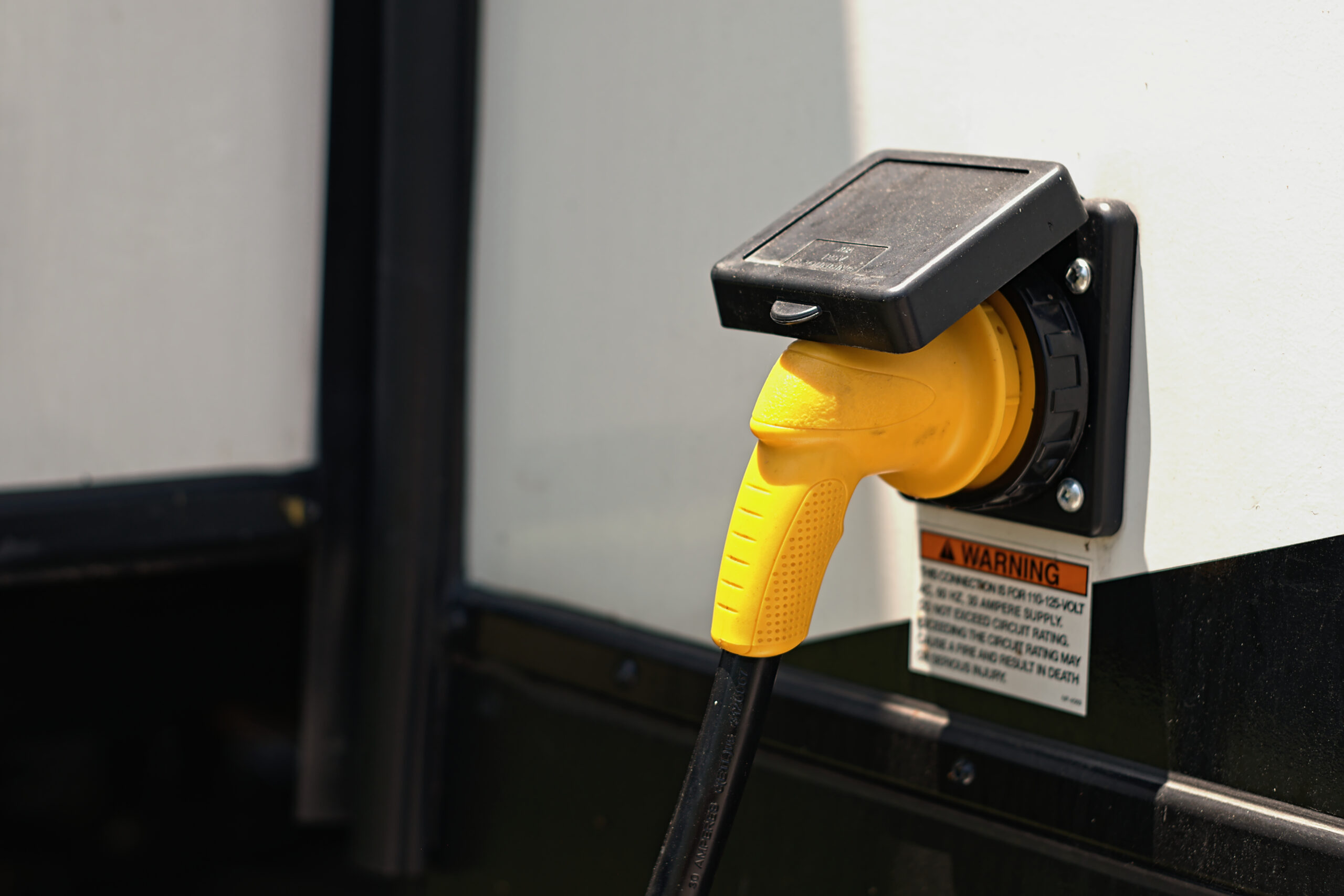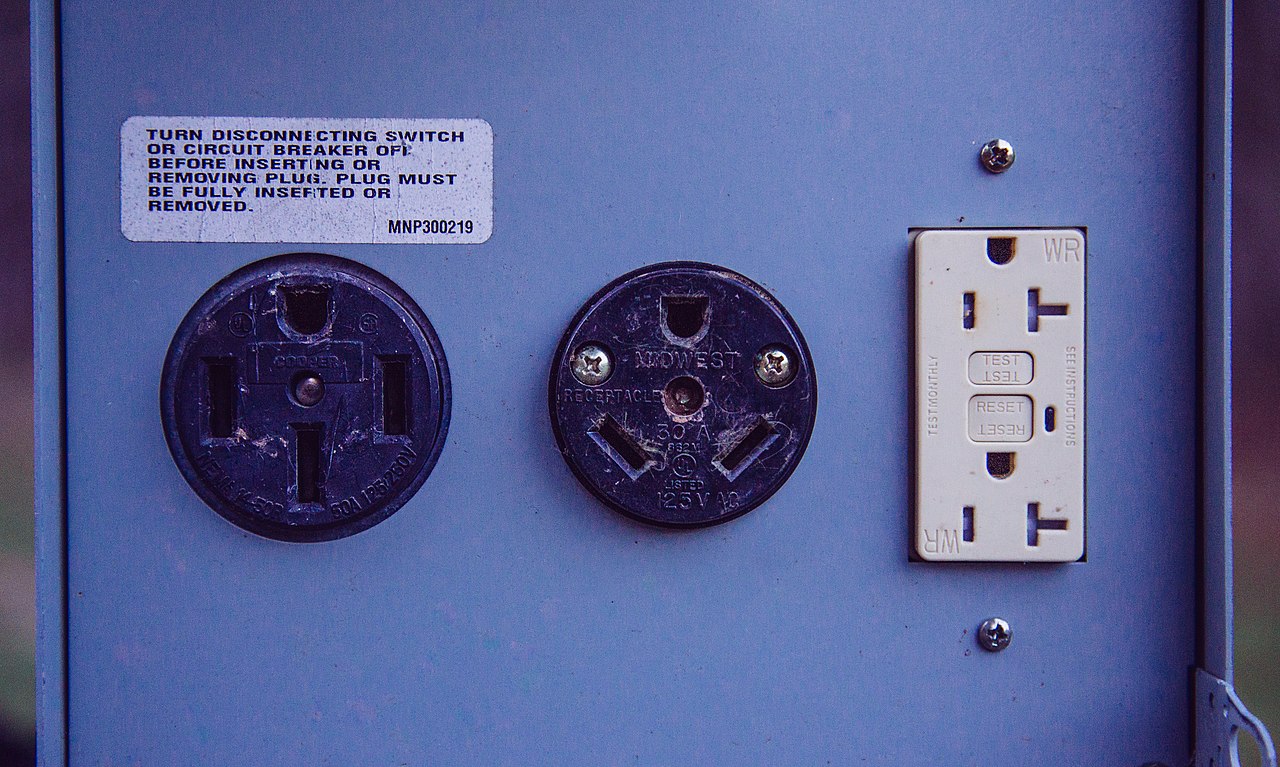
Tony Webster from Minneapolis, Minnesota, United States, CC BY 2.0, via Wikimedia Commons
Will An RV Converter Work Without A Battery?
Let’s say you’re out on a camping trip, and you realize your RV battery is boiling. Of course, you have to disconnect it right away, but then what? Can you continue on with your camping trip without replacing the battery? Is it okay to stay plugged into shore power? Will an RV converter work without a battery?
If you find yourself in this situation, you are not alone. Many people wonder, “Will an RV converter work without a battery?” The answer: It’s complicated.
In this article, we will help you better understand what your RV battery and converter do, and we’ll let you know what might happen if you do use your RV converter without a battery. This will allow you to decide what to do for yourself.
RV Electrical 101
First, you should learn a bit about your RV’s electrical system. Since we are discussing the battery and converter in today’s post, that is what we will focus on.
An RV battery works as a power storage container of sorts. Some people might charge their battery with solar panels, but for the most part, campers count on being plugged into shore power to fill their RV battery with electricity.
When you plug your RV in, a 120-volt AC current enters the rig. This current can be used to power things like the air conditioner and microwave, but several key components on your RV require a 12-volt DC current.
This is where the converter comes into play. Your converter works to change or convert that AC current to the DC current that your lights, fridge, and vent fans use. It then sends the DC current to your RV battery, keeping it charged up and ready to go.
When your RV needs DC current in order to run something, power is pulled from the battery. This is why, as long as your battery has a charge, you can use things like lights and fans even when you aren’t plugged into power.
Will an RV converter work without a battery?
So, your RV battery is the storage container for DC power. This might lead you to believe a battery is necessary to use any of the things on your DC system, and that would be a logical conclusion. Fortunately, it’s incorrect.
An RV converter will continue to work even without a battery in place as long as you are plugged into shore power.
What’s the difference? Instead of storing DC power, the converter will work to create DC power on demand. This will power your lights, propane fridge, vent fans, and anything else on the 12-volt system, and because your RV will be plugged in, you will also have full use of your 120-volt AC appliances.
The short answer to, “Will an RV converter work without a battery?” is yes—in most cases, it will. However, you will want to check with your converter’s manufacturer before trying this out. Additionally, there are some things to take into consideration before you jump into using your RV without a battery installed.
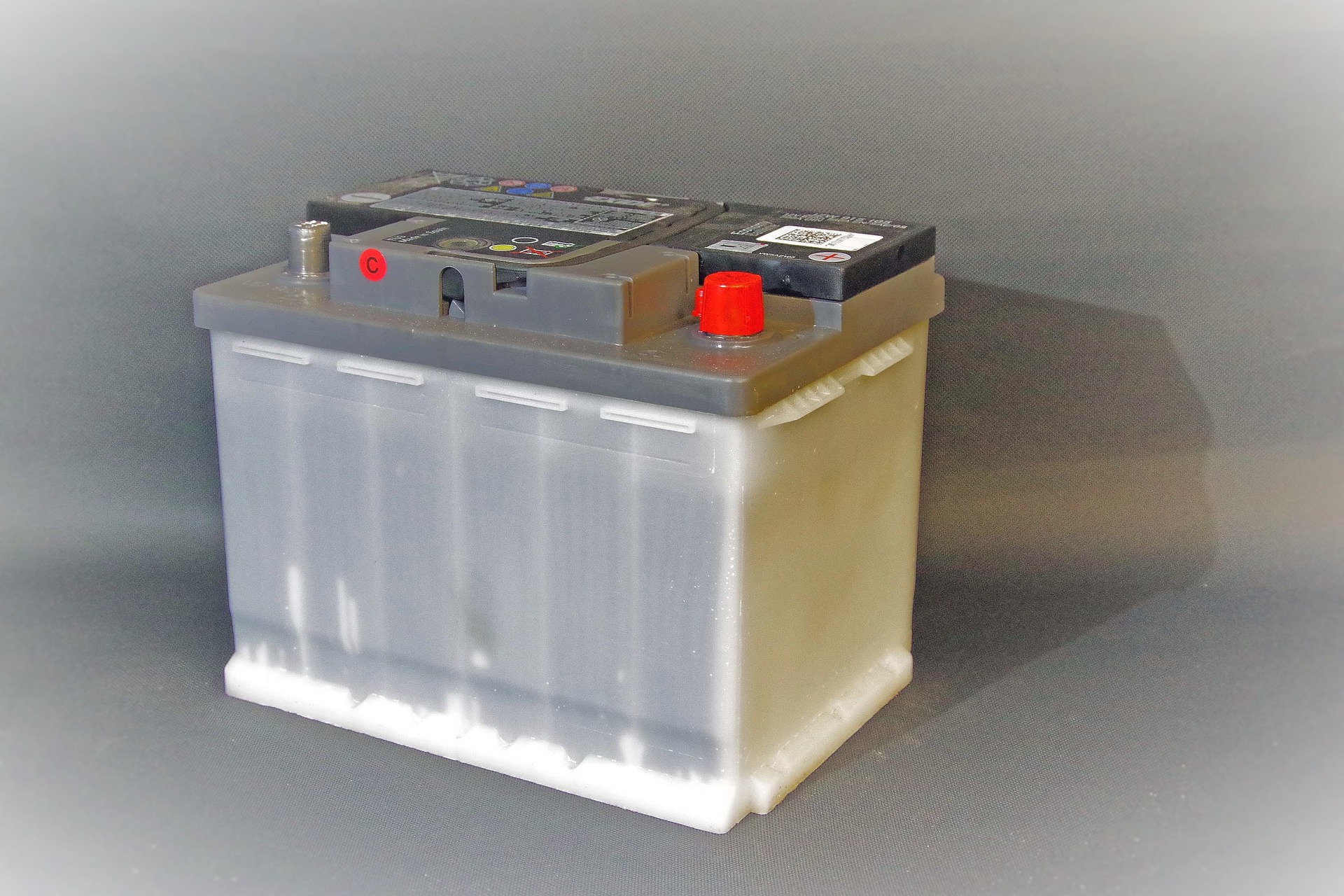
What to know before removing your RV battery
Now that we’ve established the fact that the converter will continue to work even without a battery, let’s talk about what you need to know before removing your RV battery. Knowing these things in advance could save you loads of money.
Cover the battery connections
First, it’s important to realize that the converter will continue to send a charge to your battery, even if one isn’t connected. This means that your battery connectors will still be receiving power. If the connectors are touching anything metal, this could be extremely dangerous.
For this reason, it’s incredibly important that you cover the connectors with electrical tape or something else that doesn’t conduct electricity. This will keep you safe from harm and your RV safe from damage.
Replace the battery ASAP
Knowing that your converter will keep your RV up and running even without a battery might tempt you to avoid replacing the battery at all. This isn’t a great idea.
You see, as we mentioned above, your converter will continue to try to charge a battery even with no battery in place. Not only that, but the converter will see the non-existent battery as being completely discharged, meaning it will continue sending a full charge out all the time. On top of that, the converter will have to compensate for a lack of stored DC power when running high-power DC appliances such as the furnace fan or slide motors.
What does all of this mean for you? Well, because the converter will be working so much harder to get the job done, it will likely mean replacing the converter sooner rather than later. While a converter replacement is relatively easy, putting in a new battery is a whole lot easier and less expensive.
Don’t tow without a battery
As you probably guessed, nothing electrical works when your RV is unplugged and without a battery. Not only does this make boondocking nearly impossible, it can also pose a few other problems.
One of the most dangerous problems that comes with operating your RV without a battery comes into play when driving. If your RV is towable, it likely has electric brakes. These will work just fine without a battery as long as you’re plugged into your tow vehicle. However, if your RV somehow becomes disconnected and the breakaway cable is pulled, the battery is what provides the power needed for those electric brakes to engage. No battery, no brakes.
Obviously, this is a situation we all hope to avoid, but should something go wrong, those brakes could literally be a lifesaver. For this reason, you definitely don’t want to tow without a working battery in place.
So will an RV converter work without a battery? The answer is usually yes, you can run your RV converter without a battery. However, you should always check with your manufacturer, make sure you disconnect correctly, replace the battery as soon as possible, and avoid towing until that new battery is installed.
Make sure you keep track of all your RV maintenance and repairs with an online tool such as RV LIFE Maintenance from RV LIFE. Not only can you keep all of your documents in one place, but you’ll also receive timely reminders when maintenance is due to help you avoid costly repairs and potentially serious accidents.
Related articles:

